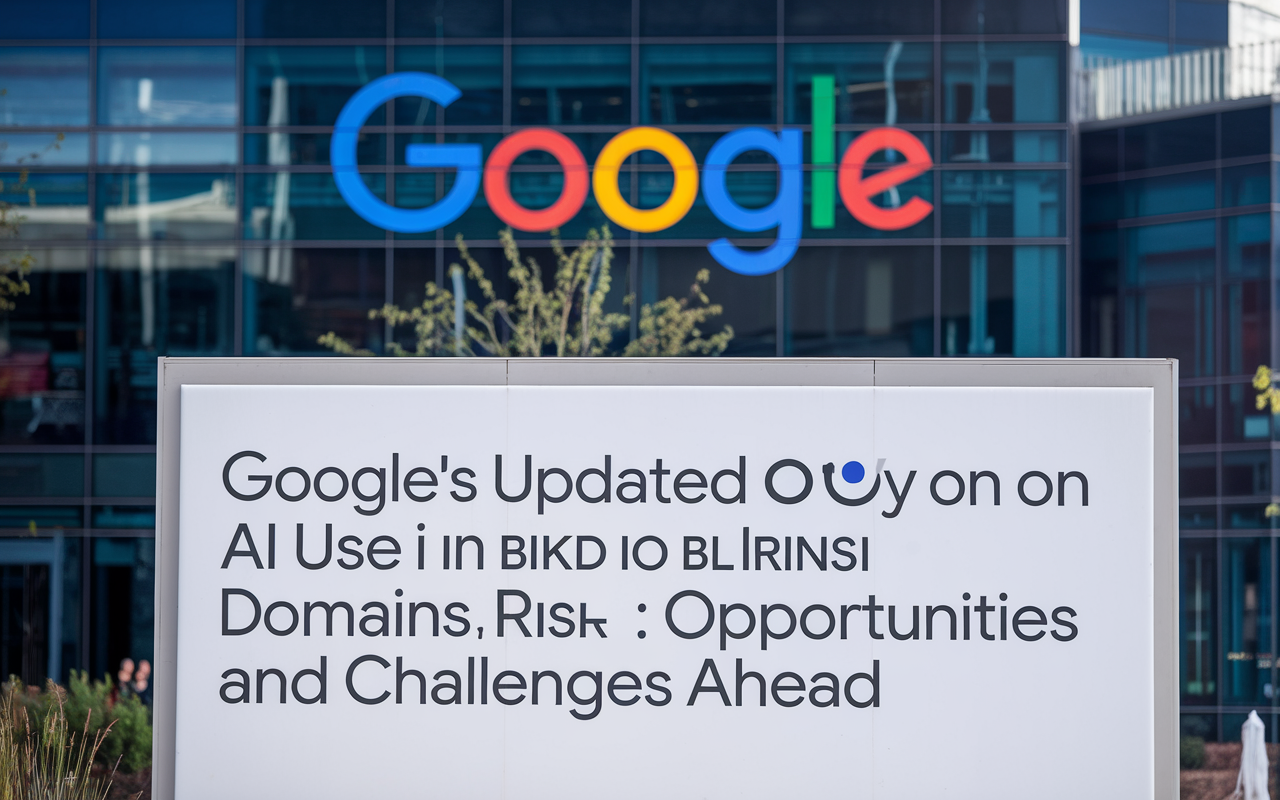Google Allows AI Use in High-Risk Domains with Human Supervision 🚀🧠
In an exciting update for AI applications, Google has recently revised its policies to permit the use of its generative AI tools in high-risk domains—like healthcare and financial services—as long as there's human supervision involved! This is a significant move that raises new questions and opportunities for the tech world. 🎉🤖
What Does This Mean? 🤔
According to Google's updated Generative AI Prohibited Use Policy, AI can now be deployed to make automated decisions in areas that could deeply affect personal rights, such as employment, housing, and insurance, provided that a human is supervising the process. The clarity in policy seems to empower customers while ensuring a safety net with human involvement.
Previously, there was a vague ban on high-risk automated decision-making, leading many to believe such applications were entirely off-limits. Google's spokesperson clarified that the requirement for human supervision has been part of their policy all along, but they are now giving clearer guidelines. 📜💼
Comparing Google with Its Rivals ⚖️
Interestingly, Google's approach contrasts with that of competitors like OpenAI and Anthropic, which impose stricter limits on their AI systems in high-risk applications. For instance, OpenAI prohibits the use of its tools for decisions involving credit and employment, while Anthropic mandates supervision by a qualified professional. This disparity invites stakeholders to reflect on the varying levels of accountability across AI providers, and whether regulations should evolve to ensure the protection of user rights. 🌍🔒
Regulation and Scrutiny 📝
As we dive deeper into the implications of AI in decision-making, it’s essential to highlight the increasing scrutiny from regulators worldwide. Various studies have evidenced that AI-driven decisions might perpetuate biases that have historically disadvantaged certain groups.
For instance, nonprofit organizations like Human Rights Watch have called for banning “social scoring” systems due to the risks they pose to privacy and social support access. Meanwhile, in the EU, stringent regulations for high-risk AI systems require rigorous oversight, signifying a global push towards responsible AI deployment. 📢👥
What Lies Ahead? 🚀🔮
This policy update not only invites innovation within Google’s platforms but also challenges business leaders and developers to reconsider how they implement AI technologies in potentially life-altering decisions. As AI continues to evolve, companies must remain vigilant in aligning AI applications with ethical practices and ensuring protection against bias.
While Google's move may bolster faith in AI capabilities for high-risk applications, it also necessitates a responsible approach and thorough assessments of human oversight practices. As we navigate this exciting terrain, the implications of AI on human rights and ethical standards will be crucial areas of continued discussion and development. 🔍💡
What do you think about Google's revised policy on AI use? Will it open new avenues in high-risk domains, or do you think it poses more risks than rewards? Let us know in the comments! 👇💬
Source: TechCrunch #AI #Google #Innovation

More Stories
Meta’s AR Ambitions and AI Safety: Insights from the Equity Podcast
Insight Partners Data Breach: A Wake-Up Call for Cybersecurity Awareness
Lovable’s Ascendancy: Anton Osika at TechCrunch Disrupt 2025